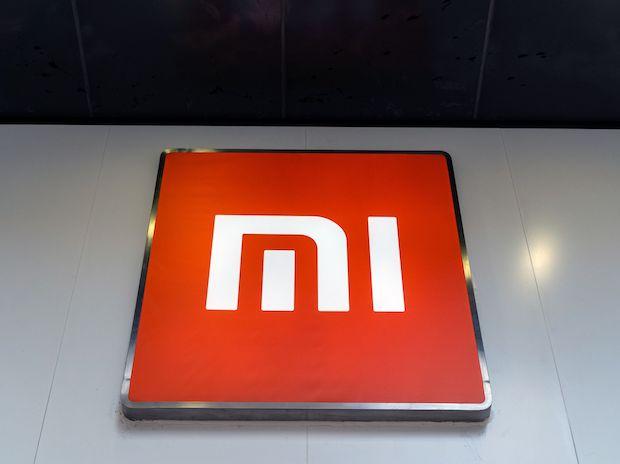Tech Giants Accuse Indian Agencies Of Ignorance In Xiaomi Spat

A lobby group including Apple Inc. and other technology giants operating in India called out the country’s authorities for misunderstanding how patent fees work, following local officials’ dispute with Xiaomi Corp.
In a letter to ministries, the India Cellular and Electronics Association urged the federal government to intervene and accused the country’s enforcement agencies of a “lack of understanding” of royalty payments in the technology industry.
India’s anti-money-laundering agency is accusing Xiaomi of moving money out of the country by falsely claiming it was for patent-fee payments. The agency seized more than $700 million from a local unit of the Chinese smartphone maker in April, a move that has since been put on hold pending a final court decision.
While the lobby group’s letter didn’t name the Xiaomi case specifically, it warned that accusing companies of illegal royalty payments could have a “chilling effect” on business in the country. The risk for the other companies is that Indian authorities apply similar interpretation of royalty payments to other tech firms, too. Xiaomi is a member of the ICEA, as are rivals including China’s Oppo and homegrown firm Lava as well as Apple and its suppliers Foxconn Technology Group and Wistron Corp.
Xiaomi has disputed India’s asset seizure, arguing that its patent-fee payments are justified and its statements to financial institutions have been accurate. Indian authorities said Xiaomi’s local unit remitted money to three foreign-based entities with ties to Xiaomi, masking them as royalty payments.
Enforcement authorities have taken “a stance that royalty is a simple way to take money out of India,” the lobby group said in its May 30 letter, addressed to the federal finance, trade and tech ministers, and seen by Bloomberg News. “We appreciate that it is the duty of agencies to identify malpractice in India, but in this case, they are not well-briefed. Patent implementers are doubly embattled, paying onerous royalty on one side, and facing and fearing enforcement actions on the other.”
India’s finance, trade and tech ministries and the anti-money-laundering agency didn’t immediately respond to requests for comment.
Xiaomi has argued that it is being targeted because it is Chinese, insisting that the payments abroad were royalty remittances for using patented technology. Companies worldwide pay billions of dollars in such fees annually for using each others’ intellectual property.
Tax raids on Xiaomi and allegations of money laundering have dented the company’s brand image in the country where it is the top seller of smartphones. But the dispute over what counts as royalties could have implications on other smartphone and electronics companies with operations in India.
India’s crackdown on Xiaomi is part of a broader scrutiny of Chinese companies after a Himalayan border clash between the two nuclear-armed neighbors in 2020. New Delhi has since banned more than 200 mobile apps from Chinese providers, including shopping services from Alibaba Group Holding Ltd. and ByteDance Ltd.’s popular TikTok video app.
India is also probing the local units of China’s ZTE Corp. and Vivo Mobile Communications Co. for alleged financial improprieties, Bloomberg News reported this week.
“The Chinese government is following the matter closely,” Chinese Foreign Ministry spokesman Zhao Lijian told reporters at a regular press briefing in Beijing on Tuesday. “The Chinese government always requires Chinese companies to operate in accordance with law. At the same time, we firmly support Chinese companies to uphold their own legitimate rights and interests. The Indian side should act in accordance with laws and regulations and provide a fair, just and nondiscriminatory business environment for Chinese companies.”
Business Standard has always strived hard to provide up-to-date information and commentary on developments that are of interest to you and have wider political and economic implications for the country and the world. Your encouragement and constant feedback on how to improve our offering have only made our resolve and commitment to these ideals stronger. Even during these difficult times arising out of Covid-19, we continue to remain committed to keeping you informed and updated with credible news, authoritative views and incisive commentary on topical issues of relevance.
We, however, have a request.
As we battle the economic impact of the pandemic, we need your support even more, so that we can continue to offer you more quality content. Our subscription model has seen an encouraging response from many of you, who have subscribed to our online content. More subscription to our online content can only help us achieve the goals of offering you even better and more relevant content. We believe in free, fair and credible journalism. Your support through more subscriptions can help us practise the journalism to which we are committed.
Support quality journalism and subscribe to Business Standard.
Digital Editor
Stablecoin The Future Of Currency?
The payments system is undergoing a quiet but consequential shift. What was once the exclusive preserve of central banks... Read more
BoE Loosens Capital Rules
The Bank of England has taken a significant step towards easing post-crisis regulation by lowering its estimate of the c... Read more
Monzo Looks For US Banking License
Monzo is preparing a renewed push to secure a US banking licence, four years after abandoning its first attempt when tal... Read more
Crypto Firms Push Into US Banking
America’s cryptocurrency companies are scrambling to secure a foothold in the country’s traditional banking system, ... Read more
Parallel Banking: Stablecoins Are Now Global
Parallel Banking: How Stablecoins Are Building a New Global Payments SystemStablecoins—digital currencies pegged to tr... Read more
JPMorgan Deploys AI Chatbot To Revolutionize Research And Productivity
JPMorgan has deployed an AI-based research analyst chatbot to enhance productivity among its workforce, with approximate... Read more

